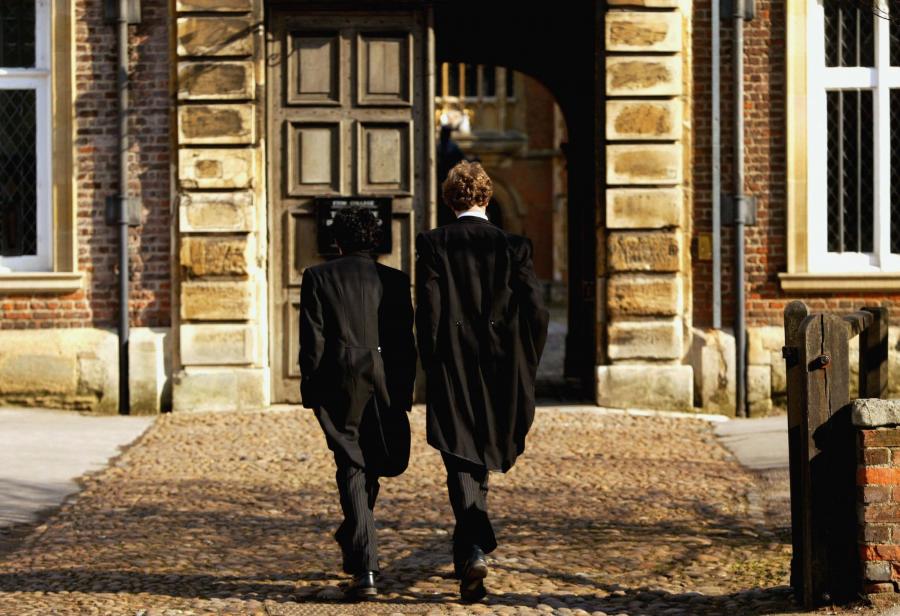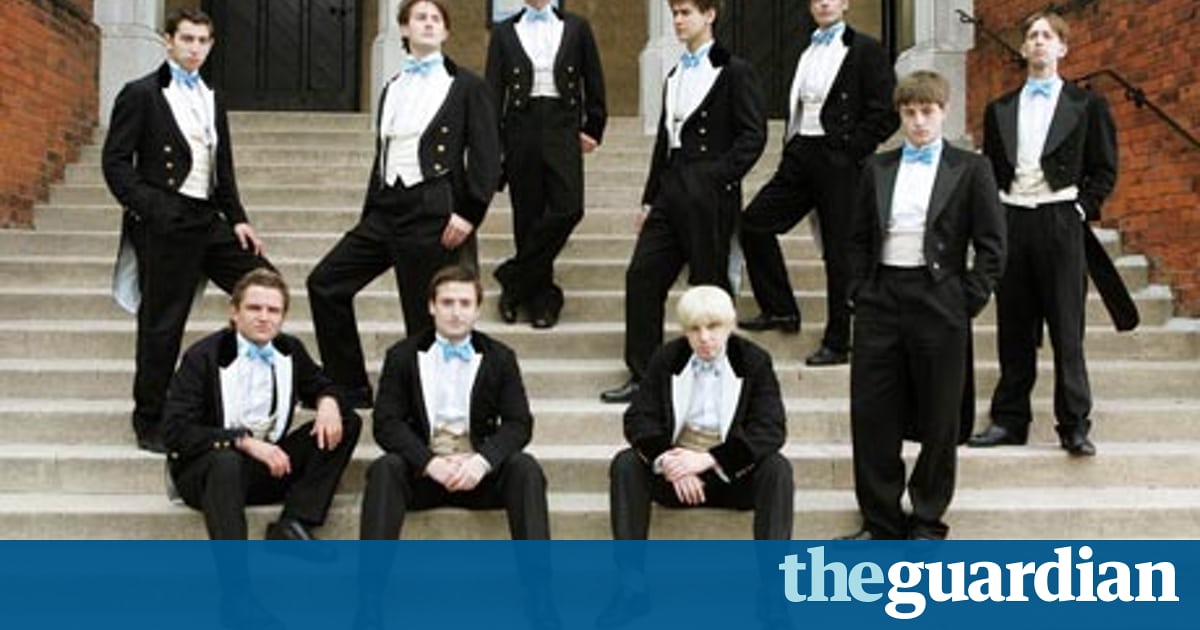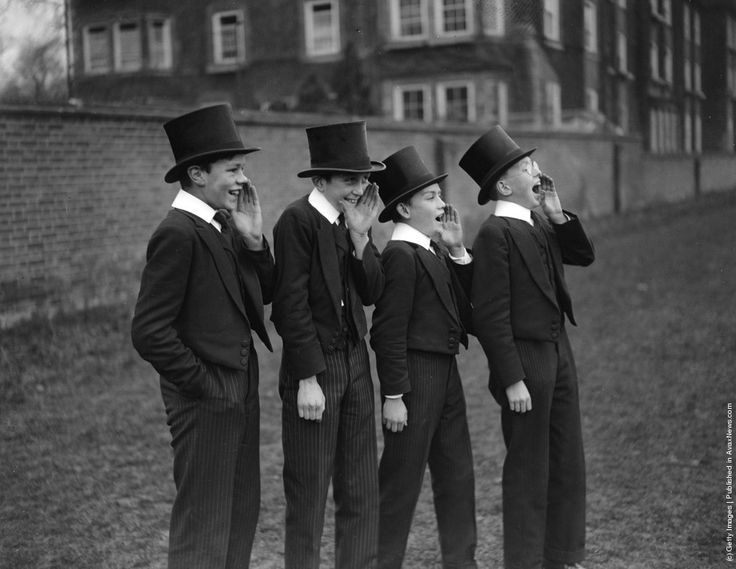
I had a bit of an epiphany the other day, a sudden realisation that the UK’s underperformance for well over a hundred years is almost entirely the fault of the appalling standard of education in our schools. Only, I don’t mean state schools; they are in a mess but it’s not of their making. If blame for the UK’s long-term decline belongs anywhere, it belongs with our hallowed public schools, which have a proud track record of producing self-confident wazzocks.
I realised this a while after watching an episode of ‘The Crown’. If you‘ve been watching you’ll know the scene where Anthony Eden is giving a speech to the boys at Eton.

He asks a hall full of boys in tails:
“If Britain’s leaders aren’t coming from Eton where should they be coming from? You see before yourself the 16th Etonian prime minister. Out of 40. Not a bad percentage. Harrow incidentally only accounts for seven.”
There are lots of answers to Eden’s question (polite and less polite) but he (and I guess everyone else in the hall) clearly thought this was the natural order of things. Not much has changed since Eden’s day. Politics still draws heavily on our public school ‘elite’. The Sutton Trust’s ‘Leading People 2016’ (https://www.suttontrust.com/research-paper/leading-people-2016/) report offered the following statistic:
- in 2016 32% of MPs had been privately educated and 50% of the cabinet (compared with 13% of the shadow cabinet).
Those who don’t enter politics slot effortlessly into other areas of influence and power. By effortlessly I mean without having to try too hard or compete with the plebs. Jobs are arranged not advertised. Rather disingenuously, Sir Peter Lampl, chair of the Sutton Trust put the success of public school graduates down to their character building ethos:
“As well as academic achievement, an independent education tends to develop essential skills such as confidence, articulacy and teamwork, which are vital to career success.”
Public schools are pretty good at building an old-boys network too of course and never having to compete to get a foot on the ladder tends to build confidence in even the dimmest Hooray Henry or Bullingtonian.

- Although just 7% of the population attend independent fee-paying schools, almost three quarters (71%) of top military officers were educated privately, with 12% having been taught in comprehensive schools;
- In the field of law, 74% of top judges working in the high court and appeals court were privately educated;
- in journalism, more than half (51%) of leading print journalists went to independent schools, with one in five having attended comprehensive schools, which currently educate 88% of the population;
- In medicine, meanwhile, Sutton Trust research says 61% of the country’s top doctors were educated at independent schools; nearly a quarter (22%) went to grammar school and the remainder to comprehensives;
- In business, partly because of the internationalisation of top posts, the report says the proportion of FTSE 100 chief executives educated at independent schools has fallen from 70% in the late 1980s to 54% in the late 2000s and 34% today;
- Graduates of Oxford and Cambridge universities continue to dominate the field, though they educate less than 1% of the population. In law, nearly three quarters (74%) of the top judiciary went to Oxbridge; 54% of the country’s leading journalists went to Oxbridge, and just under half (47%) of the cabinet attended Oxbridge, compared with 32% of the shadow cabinet;
(ibid)
To talk about this will be characterised as the politics of envy; I think it’s more like the politics of oppression in a country sewn up so tight almost everyone is suffocating. For a few hundred years every aspect of the lives of ordinary people has been influenced and governed by the products of our esteemed public schools. On the whole this sewn-up system for the preservation of status and privilege has worked pretty well for our betters. It went a bit wrong during the First World War of course; no-one anticipated the extent of the slaughter or that it would include the slaughter of the officer cadre. It was probably the first conflict where junior officers and gentlemen were forced to live and fight in close proximity with the cannon fodder. When this self-perpetuating system has hit a problem, as illustrated in two wars, it’s usually been a supply side one: in those circumstances the gates have been opened a tad to allow other classes to swell the ranks (temporarily). For example, in the Second War as the death toll of pilot officers rose other ranks were allowed to fly. Roughly two-thirds of the 3,000 or so RAF pilots who flew in the Battle of Britain were officers, the other third being sergeant and flight sergeant pilots. Sergeant pilots shared everything with commissioned officers, except the officers’ mess of course – that would never do.
Our betters are not necessarily bad people; I expect they are as mixed a bunch as any other. Their problem is that they just don’t know what life is really like for most of us. They’re brought up in an exclusive environment within a system based on separation and with a value base that encourages the notion that their success is based on merit and the failure of the locked-out is based on a lack of merit- ‘benefit scroungers’ etc. Empathy and understanding are unlikely when too many of what is, evidently, still a ruling class are emotionally damaged and suffering from attachment disorders – you would be too if you’d been sent to boarding school at 5 plus.


Our education system is a privileged on underprivileged version of apartheid. It explains much of Grenfell Tower and Brexit. There’s a faint hope (and it is faint) that the Grenfell community will take back a measure of control of their lives. Meanwhile those who govern us and know they’re right to do so are taking back control of everything else. That’s why the EU was projected as the enemy of the people – it imposed social and legislative limits on what could be done by the elite to the rest of us.
So it would be unwise to expect the government’s new social mobility initiative to change the lives of ‘ordinary hard-working people’; the real indicator of the direction of travel is the resignation a week or so ago of all members of the government appointed Social Mobility and Child Poverty Commission.